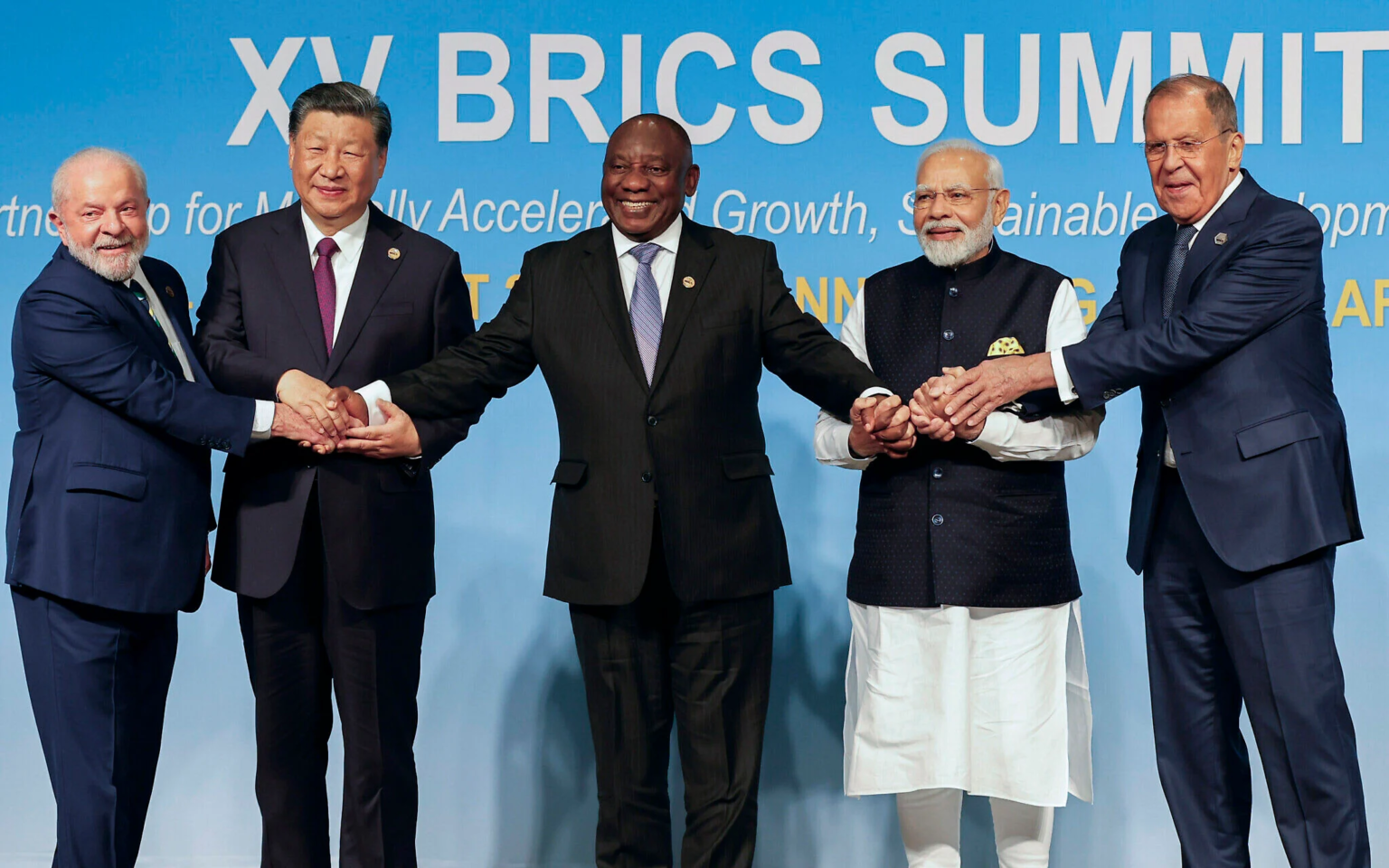In a major move that could reshape the global economic order, Saudi Arabia, the United Arab Emirates (UAE), and Egypt officially joined the BRICS group of emerging economies in 2024. This step marks a strategic turning point for both the Gulf Cooperation Council (GCC) and the wider global community.
The expansion of BRICS — which originally included Brazil, Russia, India, China, and South Africa — to welcome major Middle Eastern economies is more than a symbolic gesture. It reflects a shifting balance of power in the international economy and opens up new markets, investment opportunities, and political influence for the GCC.
What Is BRICS, and Why Does It Matter?
BRICS is a group of five major emerging economies that came together to promote economic cooperation, financial development, and multipolarity in global governance. Together, the original five BRICS nations represent more than 40% of the world’s population and over 25% of global GDP.
With the inclusion of Saudi Arabia, UAE, and Egypt — all strategically located and rich in natural and financial resources — BRICS becomes even more influential. It now covers a larger share of global oil supply, trade routes, and investment flows, making it a serious counterbalance to Western-dominated institutions like the G7 and IMF.

Why Saudi Arabia and the UAE Joined BRICS
The inclusion of Saudi Arabia and the UAE is particularly significant because these countries are not only economic giants in the Gulf but also key players in global energy markets.
Key Motivations:
- Diversifying away from Western alliances by forming closer ties with Asia, Africa, and Latin America.
- Boosting trade and investment with fast-growing economies like China and India.
- Supporting de-dollarization efforts by exploring new payment systems and currencies for international trade.
- Increasing geopolitical influence in a changing global order.
Saudi Arabia, for example, is the world’s largest oil exporter and is leading major economic reforms under Vision 2030. The UAE, meanwhile, has become a global financial and logistics hub, with Dubai ranking among the top 10 global cities for investment and tourism.
Egypt’s Strategic Role in BRICS
Though not part of the GCC, Egypt’s inclusion in BRICS also benefits the Gulf region. Egypt is:
- A key logistics gateway via the Suez Canal
- Africa’s third-largest economy
- A political and cultural powerhouse in the Arab world
Its involvement strengthens BRICS’ presence in North Africa and provides another link between Asian, African, and European markets.
What This Means for the GCC
For the broader GCC — including Kuwait, Bahrain, Oman, and Qatar — this development is seen as a major win. Even if these nations are not yet official BRICS members, their close economic and political ties with Saudi Arabia and the UAE ensure they will benefit from increased access to BRICS markets.

Key Benefits for the GCC:
- New trade routes and export markets in Asia, Africa, and South America
- Increased investment from BRICS development banks and sovereign wealth funds
- Opportunities to diversify beyond oil through joint projects in tech, green energy, and infrastructure
- Stronger voice in global policy discussions on topics like climate change, digital economy, and financial reforms
Expanding Trade and Investment Opportunities
GCC countries already trade heavily with China and India, two BRICS founding members. The new alignment could deepen these ties further through:
- Bilateral trade agreements
- New payment systems using local currencies
- Cross-border infrastructure investments
For example:
- The UAE and China have ongoing projects in smart cities and logistics.
- Saudi Arabia and India are partnering on energy and petrochemical plants.
- Egypt is attracting BRICS investment into its Suez Canal Economic Zone, which offers tax breaks and easy logistics access.
This cooperation makes BRICS a powerful platform for Gulf countries to grow economically and reduce dependence on Western markets.
Challenges and Considerations
While the BRICS expansion is a historic step, it also brings some challenges:
- Diverse political systems and agendas within BRICS may slow decision-making.
- Currency and financial system reforms like de-dollarization may take years.
- Global tensions, including the Russia-Ukraine war and US-China rivalry, could affect cooperation.
Still, GCC countries are known for their pragmatic diplomacy and are likely to balance ties with BRICS and the West.
A Shift in Global Economic Power
The inclusion of Gulf countries in BRICS underlines a major shift in global influence. It signals a world where economic power is becoming more balanced between East and West, and where emerging markets are demanding a stronger voice in international institutions.
As BRICS continues to grow and evolve, the GCC’s involvement will help shape the future of trade, energy, finance, and global governance.
Final Thoughts: A Strategic Bet on the Future
The decision by Saudi Arabia, the UAE, and Egypt to join BRICS is not just about diplomacy — it’s a long-term strategic move. These countries are betting on a more multipolar world, where power is not concentrated in a few Western capitals but shared among diverse, fast-growing economies.
For the GCC, BRICS membership offers a unique chance to lead globally, expand READ, and secure a future that goes beyond oil. It’s a clear signal: The Gulf is no longer just watching global change — it’s helping drive it.
WATCH MORE HERE: https://m.youtube.com/watch?v=rb45furP1sA
READ MORE HERE: https://gulfmagazine.co/yasmine-sabri-egypts-shining-star-in-entertainment/



